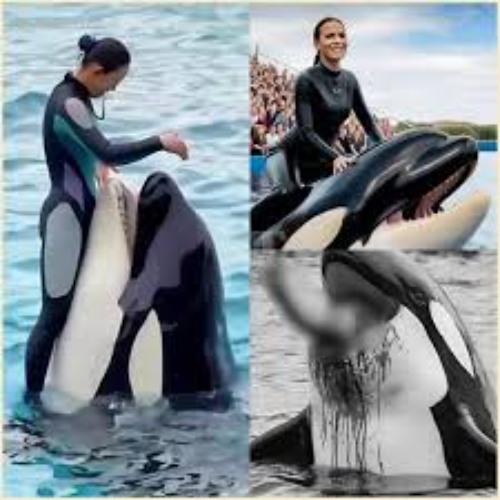[FULL] Jessica radcliffe video jessica radcliffe pelatih orca jessica et son dauphin Telegram

Recently, the internet has been abuzz with a video claiming a tragic accident, titled the “Jessica Dolphin Accident”—featuring a dolphin (or orca) trainer named Jessica Radcliffe who was attacked during a performance. The video has spread widely on platforms like TikTok and Facebook—but is the story true?
### Fact vs. Fiction: Distribution Chart
1. No Evidence of Real Identity Yet**
A thorough examination revealed no credible evidence, such as credible media coverage, official marine park announcements, or medical records, regarding the incident. One analyst even suggested that “Jessica Radcliffe” does not actually exist. All of the videos likely use artificially generated voices.
2. The Pattern is Similar to a Hoax**
According to an article in Vocal Media, this story follows the classic pattern of social media hoaxes—a dramatic headline accompanied by blurry video and a tragic narrative that grabs attention, but lacks supporting evidence.
3. **Equivalent to a Real Case**
Nevertheless, this viral story feels convincing because it's inspired by real-life incidents—such as the death of SeaWorld trainer Dawn Brancheau (2010) and another orca trainer accident, [The Star][1]). A similar story was previously highlighted in the documentary *Blackfish*.
### What's the Impact?
* Many netizens believed and were shaken by the dramatic narrative.
* Hashtags like **#JessicaDolphinAccident** and **#JusticeForJessica** were widely used despite having no basis in truth.
* This divided two groups: one calling for justice and reform, the other highlighting the spread of hoaxes and the importance of digital literacy.
### Why Did It Go Viral So Quickly?
| Causal Factors | Explanation |
| ------------------------------- | ------------------------------------------------------------------------------------------------------- |
| **Sensational Content** | Fatal accidents involving trainers and large mammals trigger instant fear and sympathy. |
| **Social Media Algorithms** | High engagement causes unverified content to spread rapidly. |
| **Lack of Prompt Clarification** | The lack of confirmation from authorities only perpetuates speculation and rumors. |
### Conclusion
The **Jessica Dolphin Accident** phenomenon is an example of a social media viral story that appears dramatic and compelling, but so far **has no official verification**. The identity of “Jessica Radcliffe” is likely fictional—although many internet users have believed it.
This incident serves as an important reminder: **always check the validity and source of information before forwarding**, as spreading unverified stories can amplify hoaxes and create public confusion.



